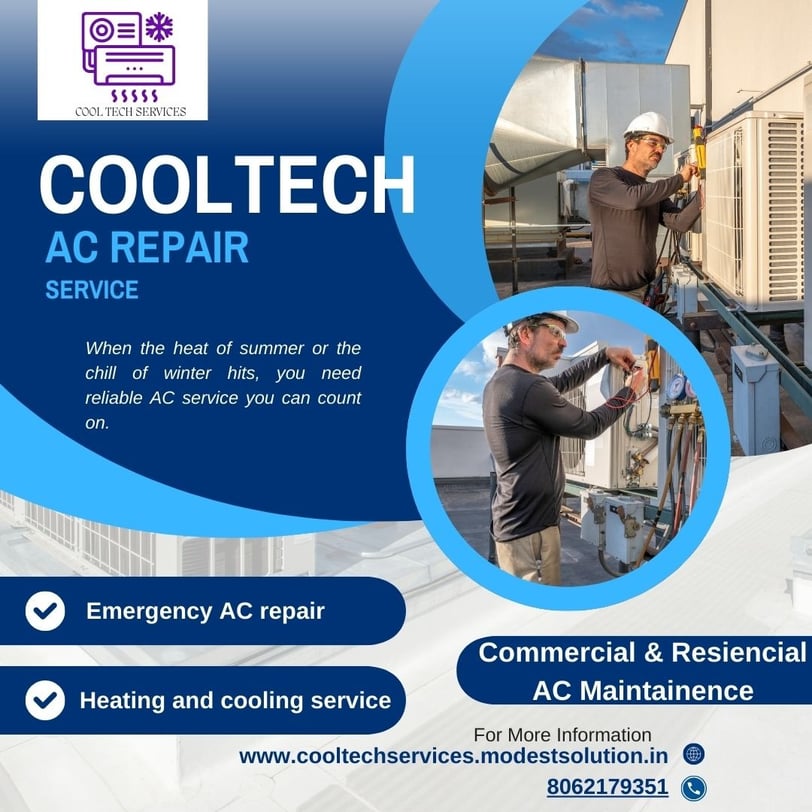Cool Tech
Call now 8451913600
8 Compelling Benefits of Inverter Air Conditioning Systems
7/2/20242 min read


Upgrade Your Comfort: 8 Compelling Benefits of Inverter Air Conditioning
In today's world, inverters have revolutionized various household appliances, including washing machines and refrigerators. When it comes to air conditioners, inverters are game-changers, enhancing efficiency and performance by adjusting the compressor's cooling capacity according to the power supply. If you still have a non-inverter air conditioner, it might be time to consider an upgrade. Here are eight compelling reasons to switch to an inverter air conditioning system.
What Is an Inverter Air Conditioner?
Modern inverter technology transforms how the compressor in your air conditioner operates, resulting in improved functionality. Unlike conventional air conditioners that switch the compressor on and off at full speed, inverter air conditioners adjust the compressor's speed to maintain the desired temperature steadily. This method is akin to smoothly accelerating a car rather than slamming on the gas and brakes repeatedly, leading to a quieter, more efficient, and longer-lasting system.
1. Cost-Efficient Operation
Inverter air conditioners might have a higher upfront cost, but they save money in the long run. By maintaining the target temperature without constant start-stop cycles, they consume less electricity, reducing energy bills by up to 40%. Additionally, their sturdy design means less frequent maintenance and fewer breakdowns compared to traditional air conditioners.
2. Eco-Friendly
Inverter technology reduces energy consumption, making these units environmentally friendly. Lower power usage translates to fewer CO2 emissions. When combined with modern, ozone-friendly refrigerants like R410a and R32, inverter air conditioners significantly lessen their environmental impact.
3. Smooth and Consistent Cooling
Inverter ACs deliver a smoother airflow and maintain a consistent room temperature. Unlike non-inverter units that operate at full blast, inverters adjust the compressor speed, providing steady cooling without abrupt temperature changes or noisy on-off cycles.
4. Faster and More Effective Cooling
Despite their variable speed, inverter ACs cool rooms faster than traditional models. The ability to run the compressor motor at higher speeds means quicker temperature adjustments and no need for constant restarting, allowing for prompt responses to temperature changes.
5. Quieter Operation
Inverter air conditioners operate more quietly than traditional units. They usually run in temperature maintenance mode at lower compressor speeds, resulting in less noise. Additionally, the elimination of frequent on-off cycles reduces the operational noise significantly.
6. Better Sleep Quality
A quieter and more consistent room temperature means better sleep. Inverter air conditioners ensure you stay comfortable throughout the night without the noise and temperature fluctuations that can disrupt your rest.
7. Longer Lifespan
Inverter air conditioners typically have a longer lifespan due to smoother operation. Reduced noise, vibrations, and the absence of frequent on-off cycles mean less wear and tear on the unit, enhancing its durability and reliability.
8. Enhanced Benefits with Solar Power
Pairing inverter air conditioners with solar power maximizes energy efficiency and cost savings. Both technologies reduce electricity consumption and greenhouse gas emissions, making this combination ideal for an eco-friendly and affordable cooling solution.
Are There Any Drawbacks?
The primary drawback of inverter technology is the higher initial purchase price and potentially higher maintenance costs. However, these are outweighed by the long-term savings and benefits.
Different Types of Inverters
Inverter technology comes in various forms, including:
Twin/Dual Inverter: Provides faster and more precise cooling performance.
Triple Inverter Technology: Enhances cooling speed, accuracy, and extends the lifespan of the compressor with reduced noise and vibrations.
Humidity and Temperature Adaptive Inverters: Automatically adjust based on humidity levels and provide a wider temperature range for different climates.
Conclusion
Switching to an inverter air conditioner is not just an upgrade but an essential improvement for cost savings, environmental benefits, and enhanced comfort. Contact us today to learn more about the best inverter system for your needs and enjoy uninterrupted comfort all year round.
Cool Tech
Shop no.6 New Avni Tower Opp-N.H College Mira road East Thane-401107
AC Repair Service
+91-8451913600
© 2024. All rights reserved.
